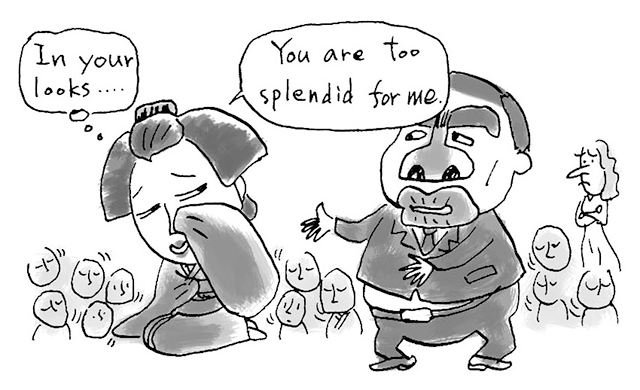Japanese People Use Pretext to Achieve Real Intentions

Japanese people are usually very careful about how they speak and behave so that they will not be criticized. However, the reality is that Japanese gain what they want by camouflaging their true intentions well. For example, the Japanese Constitution bans Japan from maintaining a military, but in reality, the country does possess armed forces, called the “Self Defense Force” under the pretext of protecting and defending Japan.
Prostitution is probably the best example of this trait. Of course, prostitution does not officially exist in Japan, but in reality, it does in the form of “Soap Lands,” which are special public baths where a woman will wash a man’s body. Although the customer pays a fee, it is acknowledged as a bath fee, not a prostitute’s fee. While the woman washes the man’s body, it is taken that they “suddenly fall in love,” therefore, their sex act is considered as love and not a crime.
Even individuals uses real pretexts. For example, in the case where you do not want to have a relationship with a person after you had an omiai (arranged meeting). Although you may have your own real intentions for turning down future contact with the person, for instance, they are “not my type” or “their income is not high enough,” etc., you will prefer to use a pretext suggesting the fault is on your side. For example: “I don’t deserve to be your partner since your family and career are too good for me.”
This “pretext” behavior appears to be cunning to foreigners, but it is safe to say that it is a kind of Japanese wisdom with the aim of achieving a goal by acknowledging reality, and furthermore to obtain the other person’s silent consent.
